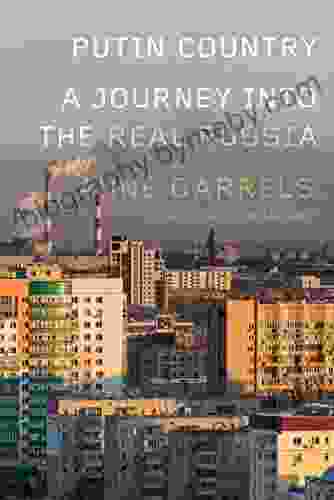Unveiling the Pioneering Spirit of the First Labor-Managed Economy: A Comprehensive Exploration

4.5 out of 5
| Language | : | English |
| File size | : | 2452 KB |
| Text-to-Speech | : | Enabled |
| Screen Reader | : | Supported |
| Enhanced typesetting | : | Enabled |
| Print length | : | 286 pages |
A Revolutionary Vision: The Genesis of Labor Self-Management
In the aftermath of World War II, as nations grappled with the complexities of post-war reconstruction, a bold and innovative experiment in economic self-determination emerged in the nascent Socialist Federal Republic of Yugoslavia.
Spearheaded by visionary thinkers and fueled by a yearning for a more just and equitable society, the concept of a labor-managed economy took root. This revolutionary model sought to dismantle traditional hierarchical structures and empower workers as the driving force behind economic decision-making.
Workers' Cooperatives: The Cornerstone of Economic Democracy
At the heart of the Yugoslav labor-managed economy lay a network of worker-owned and operated cooperatives. These cooperatives spanned a diverse range of industries, from manufacturing and agriculture to banking and retail.
Within these cooperatives, workers exercised direct control over production, investment, and distribution of profits. They elected their own managers and made collective decisions through democratic assemblies. This participatory approach fostered a sense of ownership and responsibility among workers, transforming them from mere cogs in a capitalist machine to active participants in shaping their economic destiny.
Transformative Practices: Empowering Workers, Enhancing Productivity
The labor-managed economy in Yugoslavia introduced a host of innovative practices that challenged conventional economic wisdom.
Instead of relying on traditional wage hierarchies, cooperatives implemented a system of income distribution based on the principle of equity. Workers received a share of the enterprise's profits proportionate to their labor contribution, promoting a sense of collective ownership and reducing income disparities.
Moreover, workers were actively involved in ongoing education and training programs, empowering them with the knowledge and skills necessary to navigate the complexities of self-management. This emphasis on human capital development fostered a culture of continuous improvement and innovation within enterprises.
Challenges and Obstacles: Navigating a Complex Landscape
Despite its revolutionary potential, the Yugoslav labor-managed economy faced numerous challenges and obstacles along its path.
Initial economic reforms often encountered resistance from entrenched political and economic elites, who sought to maintain their positions of power. Additionally, the system grappled with the complexities of market competition and the need to ensure efficient allocation of resources.
Furthermore, the Yugoslav labor-managed economy operated within a broader international context marked by geopolitical tensions and economic instability, which further constrained its ability to fully realize its potential.
Legacy and Impact: A Model for Economic Democracy
Although the Yugoslav labor-managed economy ultimately faced dissolution, its legacy continues to inspire and inform contemporary discussions on economic democracy.
The principles of worker self-management, employee ownership, and participatory decision-making have been adopted by numerous organizations and movements around the world. From worker cooperatives in the United States to employee-owned businesses in Europe, the Yugoslav experiment serves as a testament to the potential of alternative economic models that prioritize human dignity and empowerment.
: Embracing the Vision, Reimagining the Economy
The story of the first labor-managed economy is a captivating tale of human ingenuity, collective aspirations, and the enduring quest for a more just and equitable economic system.
By delving into the complexities of this pioneering experiment, we gain invaluable insights into the challenges and opportunities that accompany the pursuit of economic democracy. The legacy of Yugoslavia's labor-managed economy stands as a reminder that alternative economic models are not merely theoretical concepts, but viable pathways towards a more humane and sustainable society.
As we grapple with the pressing economic and social challenges of our time, it is imperative that we draw inspiration from the visionary spirit of the pioneers who dared to challenge conventional wisdom and reimagine the very foundations of our economic systems.
References
- Horvat, Branko. The Yugoslav Economic System: The First Labour-Managed Economy in the Making. New York: International Arts and Sciences Press, 1976.
- Vanek, Jaroslav. The Labor-Managed Economy: Essays. Ithaca: Cornell University Press, 1977.
- Ward, Benjamin. "The Firm in Illyria: Market Syndicalism." American Economic Review 65, no. 1 (1975): 106-124.
4.5 out of 5
| Language | : | English |
| File size | : | 2452 KB |
| Text-to-Speech | : | Enabled |
| Screen Reader | : | Supported |
| Enhanced typesetting | : | Enabled |
| Print length | : | 286 pages |
Do you want to contribute by writing guest posts on this blog?
Please contact us and send us a resume of previous articles that you have written.
 Book
Book Novel
Novel Page
Page Chapter
Chapter Text
Text Story
Story Genre
Genre Reader
Reader Library
Library Paperback
Paperback E-book
E-book Magazine
Magazine Newspaper
Newspaper Paragraph
Paragraph Sentence
Sentence Bookmark
Bookmark Shelf
Shelf Glossary
Glossary Bibliography
Bibliography Foreword
Foreword Preface
Preface Synopsis
Synopsis Annotation
Annotation Footnote
Footnote Manuscript
Manuscript Scroll
Scroll Codex
Codex Tome
Tome Bestseller
Bestseller Classics
Classics Library card
Library card Narrative
Narrative Biography
Biography Autobiography
Autobiography Memoir
Memoir Reference
Reference Encyclopedia
Encyclopedia Hernan Fontanet
Hernan Fontanet Annette Marie
Annette Marie Don Troy
Don Troy Timothy C Urdan
Timothy C Urdan Annette Burns
Annette Burns Ann Magee
Ann Magee Ariel Selwyn
Ariel Selwyn Soyica Diggs Colbert
Soyica Diggs Colbert Stephen K Sanderson
Stephen K Sanderson Anupma Agarwal Chandra
Anupma Agarwal Chandra L T Vargus
L T Vargus Anna Goldsworthy
Anna Goldsworthy Cliff Jacobson
Cliff Jacobson Md Rezowan Ahmed
Md Rezowan Ahmed Roz Maclean
Roz Maclean Anna Halprin
Anna Halprin Anna David
Anna David Antoinette May
Antoinette May Robbie Couch
Robbie Couch Raimond Gaita
Raimond Gaita
Light bulbAdvertise smarter! Our strategic ad space ensures maximum exposure. Reserve your spot today!

 Scott ParkerImmerse Yourself in the Enchanting Tales of 'The Romances Tragedies Of King...
Scott ParkerImmerse Yourself in the Enchanting Tales of 'The Romances Tragedies Of King...
 Carlos FuentesThe Radical New Way to Negotiate: A Proven System for Getting What You Want
Carlos FuentesThe Radical New Way to Negotiate: A Proven System for Getting What You Want
 Henry Wadsworth LongfellowBelinda Carlisle's Lips Unsealed: A Captivating Memoir of Love, Loss, and...
Henry Wadsworth LongfellowBelinda Carlisle's Lips Unsealed: A Captivating Memoir of Love, Loss, and... Ralph TurnerFollow ·15.5k
Ralph TurnerFollow ·15.5k Charles DickensFollow ·10.9k
Charles DickensFollow ·10.9k José MartíFollow ·13.6k
José MartíFollow ·13.6k Corbin PowellFollow ·18.5k
Corbin PowellFollow ·18.5k Evan HayesFollow ·17.6k
Evan HayesFollow ·17.6k Forrest BlairFollow ·4.1k
Forrest BlairFollow ·4.1k George HayesFollow ·2.2k
George HayesFollow ·2.2k Cody BlairFollow ·9.7k
Cody BlairFollow ·9.7k

 Juan Rulfo
Juan RulfoThe Easy Ingredient Ketogenic Diet Cookbook: Your...
Embark on a culinary adventure that...

 Zachary Cox
Zachary CoxDepression Hates a Moving Target: A Groundbreaking...
Depression...

 Colin Richardson
Colin RichardsonUnleash Your Spine-Tingling Curiosity: Dive into the...
In the realm of...

 Evan Hayes
Evan HayesMarketing Fashion Portfolio: The Ultimate Guide to...
In the competitive world of fashion, it is...
4.5 out of 5
| Language | : | English |
| File size | : | 2452 KB |
| Text-to-Speech | : | Enabled |
| Screen Reader | : | Supported |
| Enhanced typesetting | : | Enabled |
| Print length | : | 286 pages |










